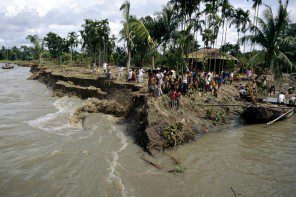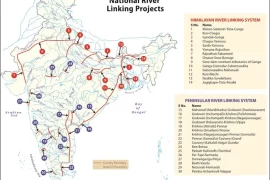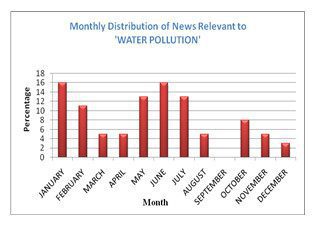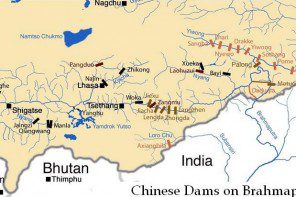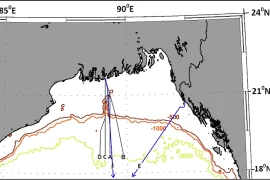Recent events in the history of mankind have shown a concern for the preservation and rational utilization of water resources. Among many events we can cite the United Nations Conference on Environment in Stockholm (1972), the United Nations Conference on Water in Mar del Plata (1977), the International Conference on Water and Environment in Dublin (1992) and the Eco 92 in Rio de Janeiro (1992). At this point, it is a concern for preservation of the environment and more specifically of water resources in relation to specific actions of different countries that attempted to create treaties, agreements and international standards on the proposed issue. And in the Congress of Vienna in 1815 the subject of international rivers was approached by international documents. Here the international watercourses were classified contiguous (when served as boundaries between states) and succeeding (they crossed two or more states). In 1966 the International Law Association launched the Helsinki Rules, which defined an international drainage basin as a geographical area that covers two or more States determined by the limits of the watersheds, including surface water and groundwater, leading to a common end point.
In this way, Brazil and Argentina considered and used the above mentioned definitions to support their positions in relation to the hydroelectric potential of the Paraná River (Brazil-Paraguay border-Argentina), where today the Itaipu dam is located. But in the case of water-sharing between India and Bangladesh, it is known that bilateral official discussions did not produce effective result so far in solving water dispute between India and Bangladesh. One of the reasons for this is the nationalist politics especially in India that jeopardizes win-win dialogue. There has always been pressure from politicians and Indian policy makers that India must win the negotiation. India is yet to share justifiable amount of water with Bangladesh through appropriate measures. Both the countries should consider and practice relevant international laws and principles to lessen trans-boundary water crisis. Chapter 18 of Agenda 21 dealing with water resources, highlights the concern for the preservation of water and the need for co-management of water resources in border areas:
“The widespread scarcity, gradual destruction and aggravated pollution of freshwater resources in many world regions, along with the progressive encroachment of incompatible activities, demand integrated water resources planning and management. Such integration must cover all types of interrelated freshwater bodies, including both surface water and groundwater, and duly consider water quantity and quality aspects…Trans-boundary water resources and their use are of great importance to riparian States. In this connection, cooperation among those States may be desirable in conformity with existing agreements and/or other relevant arrangements, taking into account the interests of all riparian States concerned.”
Some say that all these crises are happening because there is no effective pressure from other people to solve this. People to People Dialogue (PPD)–both face-to-face and digital (facebook, twitter, etc)–can be appreciated because it would be an initiative of grassroots/community-based organizations, development NGOs, where prestigious academic and cultural people participate and critically address peace building and development agenda. Furthermore, it can contribute to peace and development in a sustainable way since it incorporates all communities. It is mandatory to create pressure-group to influence Indian policy-making regarding this very issue and let them pay heed to our working with Indian civil society (through dialogue) on this issue who will work as a pressure concern and will follow international law. India really needs friendship with this neighbour and it cannot afford to stay in peace with a hostile neighbour like Bangladesh which has a vast comparative geographic advantage over India (bisecting Indian two important regions).
Mohammed Mohsin, the former ambassador of Bangladesh said that SAARC leaderships seem to be good in taking so many decisions (and even repeating many) in last 25 years, but they seem to be lacking in implementations. Our South Asian Civil Societies have unfortunately so far contributed little, excepting for helping themselves in sustaining their dialogues, many a time with well-meaning overseas donors/funds, and carry on with their academic/intellectual dialogues but with no practical acceptability to the Member States. But in response to this Kant Bhargava, Indian former ambassador believed that civil society in South Asia should now take up the role of mobilizing political will for implementation. He also said that among various unresolved issues the concern for trans-boundary water is very prominent, which should deal with actions by the civil society and urged the importance of developing border policy and management jointly that will take into account the interests of the people in the border region.
One should also consider opening a window of working with some institutions in the neighboring China, which is currently an observer in SAARC, and have shown interests in working with the SAARC. Reportedly currently India on her own is negotiating some bilateral trading posts/road connections (through Nathula Pass in Sikkim) with China, while Bangladesh & Indian North East would also be interested in having all-weather overland border road connections with the big neighbour, as well as having joint talks with China on Brahmaputra river waters.
Beside dialogues at all levels, working on a trans-boundary water related database is also a demand of time. In this modern technological arena, development of interactive database and their links to geographical information system and the assimilation of data from remote sensors are recommended-wherever possible-to create network of information on water. It should be done in the preliminary stages of survey projects, studies and research of various countries. The government of Bangladesh has already allocated 300 crore taka as climate change fund. A portion of the fund can be used for Trans-boundary water database, research and management.
Considering the international laws and suggestions of the experts, Regional Trans-boundary Waters Action Plan (RTWAP) can be developed for ecological equilibrium and to manage ecological refugees. Maintaining national water management related laws and policies is also inevitable because one has to realize that natural degradation doesn’t follow border. People of the both regions, especially who are adjacent to border area are mostly the victims of natural degradation and pollution. If Bangladesh and a portion of India is suffering today, the day is not too far when India as a whole will suffer. Moreover, we shouldn’t forget that Trans-boundary water management also depends on Inter-border Tree-plantation programme. That tree can solve many problems like desertification, river erosion; floods are evidenced by tree-plantation programme in Kenya by Wangari Maathai in her Green Belt Movement.
Last but not the least, in the densely populated region, family planning programmes are also needed because over population encourages negative competition. Instead of fighting for natural resources, we can hope that people irrespective of nations will be reunited to protect the Mother Nature for their own existence.

